New details emerge in the recently released book Benghazi: Know Thy Enemy by Sarah Adams and Dave “Boon” Benton. The book is a true cold case investigation of the attacks on American diplomats and security personnel on September 11, 2012 in Benghazi, Libya. It is a fast-paced yet detailed look at the attackers and their affiliations with global terrorist groups like al-Qa’ida, The Muslim Brotherhood and their Libyan franchises. And tt may be one of the most important books on counterterrorism published in the last decade.
Adams and Benton are former CIA Officers stationed in Libya at the time of the attack. Adams a counterterrorism specialist and targeter, Benton a CIA security officer. Both were involved before and after the Libyan crisis, after assassination of Gaddafi in 2011. This book is the result of 7 years of independent, open source investigation carried out by the authors and their network of contacts across several continents. The book includes details about the attacks that prior to its publishing, and this may be shocking to many, even the U.S. government didn’t know. This book names names. In fact it names over 150 attackers and their affiliated organizations. The work Adams and Benton have done to track down the terrorists responsible for the Benghazi attacks, yes attacks (more on that in a moment) is truly amazing. Whether because of bureaucratic ignorance or deliberate malfeasance, the full story went untold for over ten years. The authors want you to understand the nature of the enemy they faced. An enemy that is still willing and capable of attacking Americans and American interests.
We still don’t know all there is to know about what happened in Benghazi
On September 11, 2012, four U.S. citizens were killed in an attack on the American diplomatic compound in Benghazi, Libya. The attackers set fire to the compound, and also raided a nearby CIA Annex, resulting in the deaths of two additional Americans. The attack resulted in the deaths of four Americans, including U.S. Ambassador Chris Stevens, Information Officer Sean Smith, CIA operatives, Glen Doherty and Tyrone Woods, both former Navy Seals.
In the aftermath of the attack, there was widespread confusion about what had happened and who was responsible. In the years since, various investigations have been conducted, but many questions still remained unanswered. However, the authors never stopped seeking evidence which would lead them to the facts uncovering the identities of the attackers and their motivations.
Some of you will be familiar with the Benghazi attacks and key personnel, from the movie 13 Hours, based on the book 13 Hours: The Inside Account of What Really Happened in Benghazi, published in 2014. In the movie book author Dave “Boon” Benton is played by The Office actor David Denman.
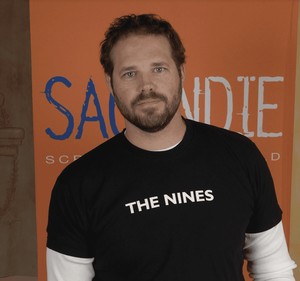

While the movie doesn’t delve into the specifics of who and the why of the attacks, preferring to depict the ferocity of the attacks, the foibles of some of the on site leaders, and the heroism of the personnel charged with protecting the compound, its personnel and its mission, this book focuses squarely on the who and the why.
The Attacks. Who were the players and what was their agenda?
The U.S. government pinned the attacks on two individuals that Adams and Benton say had nothing to do with the attacks. Contrary to the U.S. government narrative, the Benghazi attack refers to a coordinated effort led by al-Qa’ida and affiliated militants to kidnap the American Ambassador to avenge the death of a senior al-Qa’ida leader from Libya. The authors make it clear, “the attackers at the U.S. Consulate in Benghazi were not a one-off grouping of first-time offenders. Our attackers were hardened jihadists, fighting for decades before 2012 and planning to fight for as long as they could survive after.” The authors continue to make the case noting, “[w]hat sets the Benghazi attacks apart from most attacks, showing the importance Zawahiri (al-Qa’ida leader after the death of bin Laden) placed on the attack plotting, was that every one of al-Qaida’s direct affiliates was involved in the attacks: AQIM, al-Qa’ida in the Arabian Peninsula (AQAP), al-Qa’ida in Iraq (AQI), and then newly formed al-Qa’ida in Egypt (AQE). See the following graphic, showcasing the global al-Qaida affiliates involved in planning, financing, facilitating, and carrying out the Benghazi attacks.“
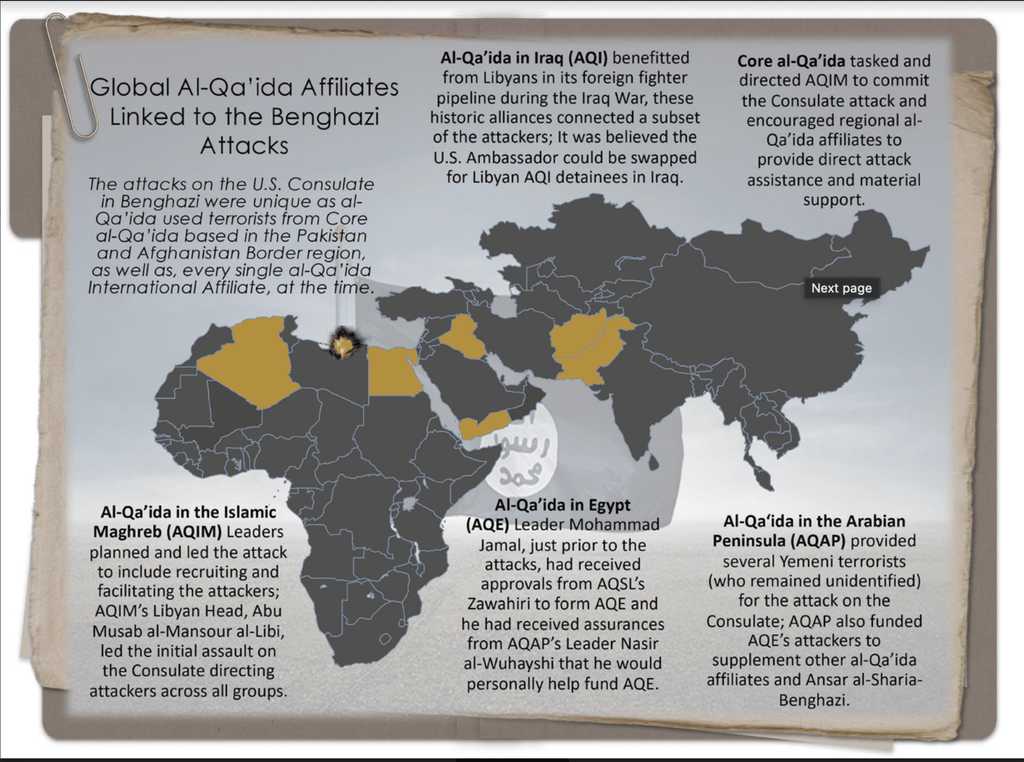
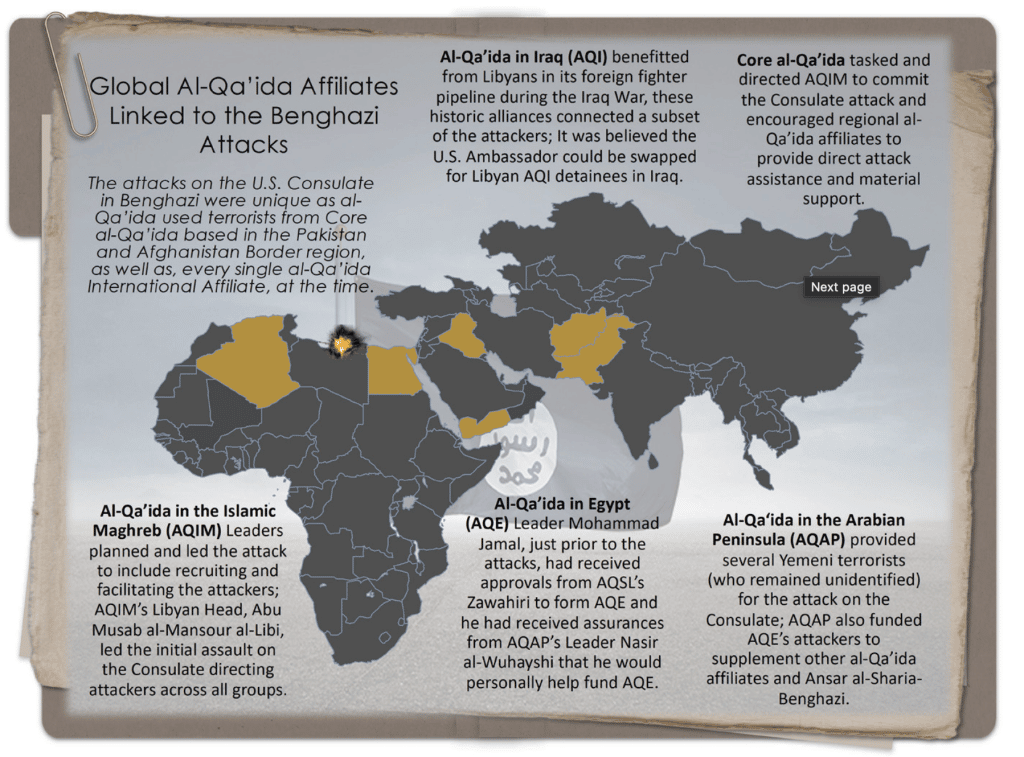
A little-known fact highlighted by the authors was that six separate attacks occurred against Americans in Benghazi. The first two were terrorist attacks on the U.S. diplomatic compound, the third was a vehicle ambush, and the last three assaults occurred at the CIA Annex.
The attackers had historic connections primarily to Al-Qaeda and the Egyptian Islamic Jihad (EIJ). The motives for the attack have been in dispute, but Adams and Benton present solid evidence that Al-Qaeda operatives were seeking to revenge the death of Abu Yayha al-Libi, a Libyan Al-Qaeda leader who was killed by a U.S. drone strike in June of 2012 and to kidnap an American Ambassador and initiate a prisoner exchange for The Blind Sheikh and other terrorist allies to include a Libyan al-Qaeda in Iraq (AQI) member who was on death row in Iraq. Nevertheless, the Benghazi attacks were a tragedy that this book confirms could have been mitigated if requests for security enhancement had been heeded and had we better known the enemy in our midst.
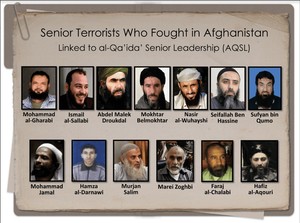
What were the mistakes made by the Obama administration leading up to and during the attack on Benghazi consulate?”
U.S. foreign policy goals often put our State Department and other personnel in harms way. Risks many of these dedicated and courageous civil servants understand and accept. But as we learn in Benghazi: Know Thy Enemy, foreign policy and even personal ambition can occlude the very real risks they face. Understanding what happened in Benghazi and why should serve to temper these ambitions.
There has been much debate surrounding the 2012 attack on the American consulate in Benghazi, Libya. Critics have argued that the Obama administration failed to adequately protect diplomatic personnel and respond to the crisis in a timely manner. While there may be debate about what could have been done to prevent the attack, a number of mistakes were made leading up to and during the event.
First, while the security situation in Benghazi was known to be unstable, the consulate was not given adequate protection. Dozens of security requests to Washington went unanswered for reasons that are still not clear. Second, in country leadership didn’t want Washington to believe Benghazi was too unsafe for the assigned diplomatic mission. Adams writes, “[t]his hesitancy in reporting resulted in incidents being downplayed, reported incorrectly purposefully, or not reported at all. Even during the FBI’s trip to Benghazi, I asked a CIA Security Officer what DoD resources would be positioned closer to Benghazi to provide potential crisis response. He noted that he and the COS in Tripoli decided not to ask for DoD support from AFRICOM. The reasoning.. they did not want it to seem the city was too dangerous and could thus bar us from returning with an Annex in the future. So not only did we trust Wissam bin Humaid with the security protection of our CIA colleagues and visiting FBI investigators in October 2012, we had no contingency if they came under attack, were kidnapped, or worse on the visit to Benghazi.” Finally, when the attack began, no outside effort was made to evacuate personnel or provide military support. Obama administration officials in country and back in Washington failed to understand and act on the security risks inherent in the mission in Libya and should bear responsibility for the attack on the U.S. mission in Benghazi.
What was Hillary Clinton’s role in Benghazi?
The resulting investigation placed much of the blame on then-Secretary of State Hillary Clinton. Clinton was accused of negligence in her handling of security at the consulate, and many Republicans used the incident to paint her as unfit for the presidency. Initially Clinton and others in government blamed a contemporaneously released film called Innocence of Muslims, released earlier in 2012, but that film had not gone viral at the time of the attacks and like many others, Adams and Boon argue the film could not be the cause of the attacks. And they document planning by al-Qa’ida for the attack, at the direction of Zawahiri, which began in June of 2012, long before the film was released. Nevertheless, the incident undoubtedly had an impact on Clinton’s presidential aspirations, and it likely contributed to her loss in the 2016 election. When Americans saw the lack of response to the attacks as depicted in the movie 13 Hours, it undoubtedly had an impact on her campaign to become president.
What should happen now that new details on the Benghazi attacks are known?
The authors hope that the release of this book, containing previously undisclosed details about the 2012 Benghazi attacks will reignite public outcry over the government’s handling of the incident, but more importantly the heretofore untold details will prevent similar attacks in the future. They also hope to honor their fallen comrades. They write, “[l]osing an Ambassador in and of itself is usually the worst outcome you can imagine when serving in a diplomatic posting overseas, as it is both a professional and a deeply personal loss. The loss of the optimism of Chris Stevens, the mind of Sean Smith, Rone’s leadership, and Bub’s spirit makes this so much harder to bear. All four dedicated their lives to serving their country, with over 80 years of service combined. Their time in service does not seem to align with the failure of justice afforded to their murderers by the U.S. Government.”
They continue, “[w]hen you look at these attackers, how many were known to you before this book for being involved in the Benghazi attacks? How many did you see on a wanted list produced by the FBI or the State Department’s Rewards for Justice Program? Even as they killed two of State’s own. One of the biggest questions should be, why were you fed a Mastermind who didn’t even know of the attacks until after they started? Did that deliver any true justice, or was it so the FBI could get a conviction and allow the U.S. Government another fake narrative regarding Benghazi. Try having served in Benghazi to hear half the U.S. population not only call it a “conspiracy” but make jokes about it or infer that your friends deserved to be killed.”
What lessons can be learned from Benghazi that will help us prevent future attacks?
The terrorist attack in Benghazi was a tragedy that could have and should have been prevented. There are a number of lessons that can be learned from what happened in order to help prevent future attacks. First, it is essential to have a clear understanding of the security situation in any area where American personnel are stationed. There needs to be a comprehensive assessment of the risks and appropriate measures taken to mitigate those risks. Second, security needs to be constantly reviewed and updated as the situation changes. The security plan in Benghazi was outdated and inadequate for the level of risk. Finally, American personnel need to be properly trained and equipped to defend themselves against attack. The local security guards in Benghazi were poorly trained, had conflicting allegiances and did not have the necessary weapons to repel the artillery armed attackers.
I believe that the information contained in the book justifies further investigation at the federal level. Others may feel that enough time has passed and that it is time to move on. While our natural tendency is to move on, I believe that the American people deserve to know the truth about what happened that night. The men and women who serve our country deserve better than to have their deaths exploited for political gain, and their families deserve closure. With that being said, I think it is important for Congress to conduct a new investigation into the Benghazi attacks based on the new evidence presented and to make all of the findings public–finally setting the record straight. Only then can we hope to learn from our mistakes and ensure that such an attack never happens again.
The Benghazi attacks were a tragedy that could have and should have been prevented. The players involved all had their own agendas, and the Obama administration made several mistakes in both the lead-up to the attack and during it. Hillary Clinton’s role in Benghazi also impacted her run for president. There are lessons to be learned from Benghazi that can help us prevent future attacks on our diplomatic missions around the world, but only if we heed them. The release of the details of this cold case investigation by Adams and Benton is a huge step in reconciling with the truth of what happened on September 11, 2012. It’s on our appointed and elected officials to act. A must read.
Benghazi: Know Thy Enemy can be found on Amazon and at Barnes & Noble.
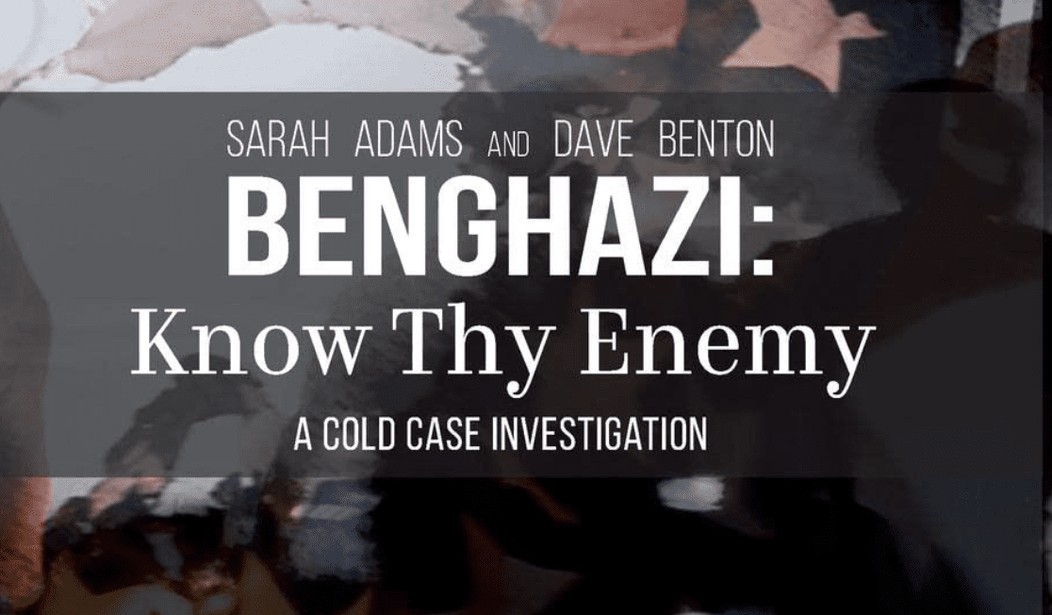







Join the conversation as a VIP Member